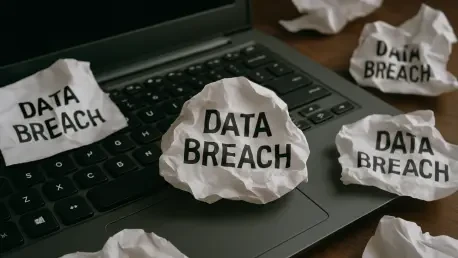In a staggering turn of events, millions of AT&T customers found themselves at the center of a major cybersecurity crisis in 2024, with two massive data breaches exposing sensitive personal information on an unprecedented scale. The fallout from these incidents has led to a proposed $177 million settlement, aimed at compensating affected individuals and addressing a wave of lawsuits that followed. The breaches, which compromised data ranging from Social Security numbers to call logs, have not only raised serious concerns about data security at one of the nation’s largest telecommunications providers but also highlighted the growing vulnerability of personal information in the digital age. As details of the settlement emerge, customers are left grappling with the aftermath of having their privacy invaded, while the industry watches closely to see how such incidents might reshape corporate accountability. This development serves as a stark reminder of the persistent threats in an increasingly connected world.
Unpacking the 2024 Data Breaches
The first breach, disclosed in March 2024, sent shockwaves through the telecommunications sector as it impacted a staggering 73 million AT&T customers. Personal details, including highly sensitive information like Social Security numbers and dates of birth, were exposed, with the compromised data dating back several years. This breach wasn’t just a fleeting incident; it revealed systemic vulnerabilities in how customer information was stored and protected over an extended period. The scale of the exposure underscored the potential for identity theft and fraud, leaving millions at risk of severe financial and personal harm. AT&T faced immediate backlash as customers questioned the adequacy of safeguards in place to prevent such a catastrophic leak. The incident became a focal point for discussions on the responsibility of large corporations to prioritize data security in an era where digital threats are ever-evolving, setting the stage for legal action and public scrutiny over the company’s practices.
A second breach in July 2024 compounded the crisis, affecting nearly all AT&T cellular customers who used the network during a specific window in 2022. This time, hackers accessed phone numbers along with detailed call and text logs, downloading the information to a third-party platform. Unlike the earlier incident, which focused on static personal data, this breach exposed dynamic communication records, raising different but equally troubling concerns about privacy invasion. The implications were far-reaching, as such data could be exploited for targeted scams or unauthorized surveillance. Customers, already reeling from the first breach, faced renewed anxiety over the safety of their interactions on a network they trusted for daily communication. This second event intensified the urgency for AT&T to address not only the immediate damage but also the broader perception of its ability to protect user information against sophisticated cyber threats in a highly competitive industry.
Details of the Proposed Settlement
Under the terms of the proposed $177 million settlement, AT&T aims to provide relief to customers affected by the 2024 breaches, with compensation varying based on the type of data exposed and the specific incident. Those impacted by the March breach may be eligible for up to $5,000 for losses incurred, with higher amounts allocated for critical data like Social Security numbers compared to less sensitive information such as names. Meanwhile, individuals affected by the July breach can claim up to $2,500 for damages. For customers caught in both incidents, referred to as overlap settlement class members, a combined payout of up to $7,500 is possible. However, eligibility hinges on providing documentation that ties losses directly to the stolen data, a requirement that may pose challenges for some claimants. This structured approach reflects an attempt to balance fairness with accountability, though the final payout amounts remain uncertain pending approval and the volume of claims submitted.
The settlement process also comes with strict deadlines and legal hurdles that affected customers must navigate. Claims had to be submitted by November 18, 2024, with a final approval hearing held on December 3, 2024, in the U.S. District Court for the Northern District of Texas. While AT&T has denied liability for the criminal acts behind the breaches, the decision to settle was framed as a pragmatic move to avoid the expenses and unpredictability of extended litigation. The company has publicly reiterated a commitment to safeguarding customer data, aiming to rebuild trust amid the fallout. Yet, questions linger about whether the settlement amount truly reflects the scale of harm caused or if it will spur meaningful changes in how such sensitive information is handled. For many, this resolution marks a critical step toward closure, though it also highlights the broader challenge of ensuring robust cybersecurity measures in an industry under constant threat from malicious actors.
Looking Ahead: Implications and Next Steps
Reflecting on the events, the breaches of 2024 stood as a sobering wake-up call for both AT&T and the telecommunications industry at large, exposing the fragility of digital defenses against determined cybercriminals. The incidents affected millions, with personal and communication data laid bare, prompting a wave of lawsuits that culminated in the substantial $177 million settlement proposal. The varying compensation tiers attempted to address the diverse impacts on customers, though the requirement for detailed documentation added complexity to the claims process. AT&T’s stance of denying direct responsibility while opting to settle underscored the delicate balance between legal strategy and public perception, leaving an indelible mark on how such crises are managed.
Moving forward, attention must shift to strengthening data protection frameworks to prevent similar breaches from occurring. Companies like AT&T face mounting pressure to invest in cutting-edge security technologies and transparent practices that prioritize customer trust. Regulators and industry stakeholders should consider tougher standards and penalties to enforce accountability, while customers are encouraged to stay vigilant by monitoring accounts for suspicious activity and leveraging available identity protection tools. Collaborative efforts between corporations, lawmakers, and cybersecurity experts will be essential in building a more resilient digital landscape, ensuring that the lessons from these incidents translate into lasting safeguards for personal information in an ever-connected world.









